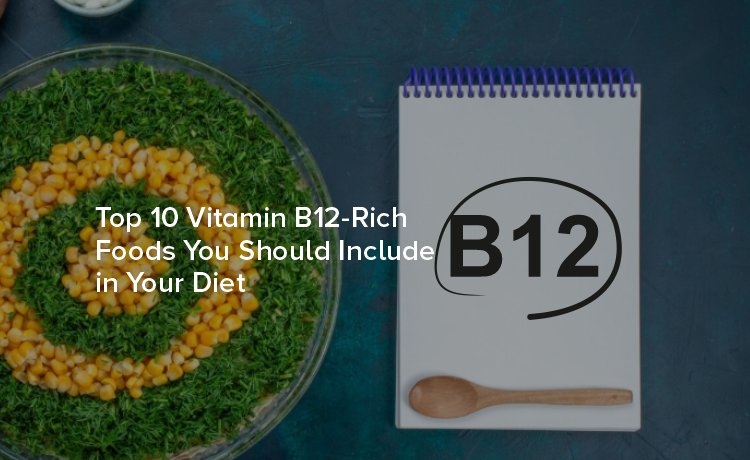
Vitamin B12 deficiency affects millions of people worldwide, yet many remain unaware of this silent health concern. This essential nutrient plays a crucial role in energy production, nerve function, and red blood cell formation. Without adequate B12, you may experience fatigue, weakness, and even neurological complications.
The good news is that incorporating the right foods into your diet can help you maintain healthy B12 levels naturally. Understanding which foods high in vitamin B12 to prioritize can make a significant difference in your overall well-being and energy levels.
Vitamin B12, also known as cobalamin, serves as a cornerstone of cellular health. This water-soluble vitamin enables your body to produce healthy red blood cells, synthesize DNA, and maintain proper nerve function. Without sufficient B12, your cells cannot divide properly, leading to a condition called megaloblastic anemia.
Your body requires approximately 2.4 micrograms of B12 daily, though this amount increases during pregnancy and breastfeeding. Unlike other B vitamins, B12 can be stored in your liver for several years, which explains why deficiency symptoms may take time to develop.
Certain individuals face higher risks of B12 deficiency, including older adults, vegetarians, vegans, and people with digestive disorders. Recognizing these risk factors helps you take proactive steps to ensure adequate intake through dietary choices.
Clams rank among the most concentrated natural food sources of vitamin B12 available. Just three ounces of cooked clams provide an impressive 84 micrograms of B12—over 3,000% of your daily needs. These marine delicacies also deliver high-quality protein, iron, and zinc.
Mussels and crab offer substantial B12 content as well, making shellfish an excellent choice for those who enjoy seafood. The bioavailability of B12 from shellfish is exceptionally high, meaning your body can easily absorb and utilize this nutrient.
Liver, particularly beef liver, represents one of the most concentrated foods high in vitamin B12. A single 3-ounce serving provides an extraordinary 70 micrograms of B12—nearly 3,000% of your daily requirement. Organ meats also supply vitamin A, folate, and iron.
While organ meats may not appeal to everyone's palate, their exceptional nutrient density makes them valuable additions to a B12-focused diet. Consider incorporating small amounts into ground meat dishes or pâtés.
Chicken and turkey offer moderate amounts of vitamin B12 along with lean protein. A 3-ounce serving of cooked chicken breast provides approximately 0.3 micrograms of B12. While not as concentrated as other sources, poultry remains a practical option for regular B12 intake.
The versatility of poultry makes it easy to incorporate into various meals, supporting consistent nutrient intake throughout the week.
Eggs serve as accessible natural food sources of vitamin B12, with two large eggs providing about 1.1 micrograms. The B12 in eggs is primarily concentrated in the yolk, making whole eggs preferable to egg whites for B12 intake.
Beyond B12, eggs offer complete protein and choline, supporting overall nutritional needs. Their affordability and versatility make them practical choices for regular consumption.
Milk, yogurt, and cheese contribute meaningful amounts of vitamin B12 to your diet. One cup of milk provides approximately 1.2 micrograms of B12, while yogurt and cheese offer similar benefits. The probiotics in yogurt may enhance overall digestive health and nutrient absorption.
Full-fat dairy products typically contain slightly higher B12 levels than their low-fat counterparts, though both versions contribute to your daily intake.
For those following plant-based diets, fortified nutritional yeast represents one of the few reliable foods high in vitamin B12 from non-animal sources. Two tablespoons of fortified nutritional yeast can provide 2.4 micrograms of B12, meeting your entire daily requirement.
Nutritional yeast offers a cheese-like flavor that enhances various dishes while providing this essential nutrient. Always verify that the product is fortified with B12, as non-fortified versions contain minimal amounts.
Many plant-based milk alternatives are fortified with vitamin B12, making them valuable natural food sources of vitamin B12 for vegetarians and vegans. Soy milk, almond milk, and oat milk often contain added B12, though amounts vary by brand.
Check nutrition labels to ensure adequate B12 content, as fortification levels differ significantly between products. Some brands provide up to 3 micrograms per cup.
Breakfast cereals fortified with B12 can contribute substantially to your daily intake. Many fortified cereals provide 25-100% of your daily B12 needs per serving. Combined with fortified plant milk, these cereals offer an excellent start to your day.
Select cereals with minimal added sugar and maximum nutrient fortification to optimize health benefits while meeting your B12 requirements.
Understanding absorption factors helps you optimize the benefits from foods high in vitamin B12. Your body absorbs B12 most efficiently when consumed in smaller amounts throughout the day rather than in single large doses. This approach allows your intrinsic factor—a protein necessary for B12 absorption—to work effectively.
Certain medications and conditions can interfere with B12 absorption. Proton pump inhibitors, commonly used for acid reflux, may reduce your ability to absorb B12 from food sources. If you take such medications, discuss B12 monitoring with your healthcare provider.
Combining B12-rich foods with sources of folate and vitamin B6 supports optimal utilization of these nutrients. This synergistic relationship highlights the importance of maintaining a well-rounded, nutrient-dense diet.
Creating a sustainable approach to incorporating these natural food sources of vitamin B12 ensures consistent intake without dietary monotony. Consider rotating different protein sources throughout the week, including both animal and fortified plant-based options based on your dietary preferences.
Meal planning can help you track B12 intake while maintaining dietary variety. Aim to include at least one significant B12 source in each meal, whether through main dishes, dairy additions, or fortified alternatives.
Adding these ten exceptional foods high in vitamin B12 into your regular eating pattern provides a foundation for maintaining optimal B12 status. Remember that individual needs vary based on age, health conditions, and dietary patterns, making personalized approaches most effective.
Regular monitoring through blood tests can help you assess whether your dietary B12 intake meets your individual needs. This is particularly important for older adults, those with digestive conditions, and individuals following plant-based diets.